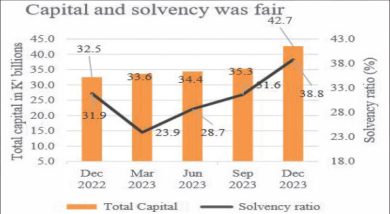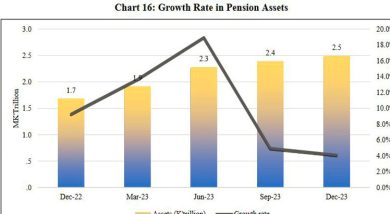RBM upbeat on BoP rise
The Reserve Bank of Malawi (RBM) says it expects the country’s Balance of Payment (BoP)—the record of all economic transactions between residents of a country and the rest of the world in a particular period—to continue posting surplus.
Figures from RBM show that Malawi’s overall BoP registered a surplus of K77.4 billion ($106.9 million) in the second quarter (April to June) of this year from a deficit of K38.8 billion ($53.8 million) in the previous quarter (January to March).
In the corresponding quarter in 2016, the country also recorded a deficit of K24 billion ($48.6 million), according to the published Financial and Economic Report for the second quarter of 2017.
In its fourth quarter (October to December) Financial and Economic Report for 2016, RBM figures indicate that the country registered a surplus of $72.4 million (about K52 billion), lower than $90.3 million (about K66 billion) recorded in 2015 on account of relatively lower net capital and financial inflows during the year under review.
A BoP surplus means the country exports more than it imports. In the short-term, a surplus boosts economic growth by lending money to countries that buy its products thereby boosting companies’ production, while in the long term, the country becomes dependent on export-driven growth.
In an interview on Monday, RBM spokesperson Mbane Ngwira said that with a big turn-around recorded in the second quarter, the central bank expects the trend to continue.
He said: “We cannot say we are pleased, but this only shows what the authorities have been saying that we are on the verge of stability.
“We are now trying to move from stability to growth and we are trying to get the foundation of economic growth and these are the signs and testimonies that we are getting there.
“This is what we have been working on for the past five years. Going forward, we will now be pushing for policies aimed at revitalising growth to maintain the stability.”
Figures from RBM indicate that the central bank has maintained a sound foreign exchange reserves position in recent months, averaging above 2.8 months.
Economic commentators on the other hand, have backed the central bank’s efforts to recover the economy by putting in place sound structural reforms to anchor the reserves.
Economic statistician Alick Nyasulu is on record as having said the current economic underpinnings and government dealings point to the direction of an economy on the rebound and may lead to an increase in reserves which might also lead to a strong kwacha.
Over the past 12 months, the inflation has been trending downwards, now it is at 10.2 percent, the kwacha has stabilised and the foreign exchange reserves are at above three months of import cover, which is regarded as the rule of thumb. n






